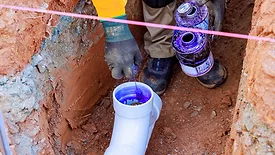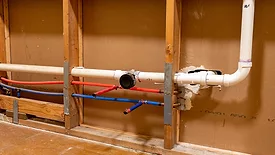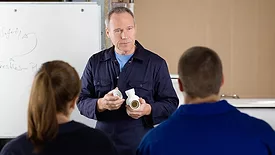Columns
Editorial Opinion | Kristen Bayles
Starting the year with purpose
Read More
Guest Editorial | Tom Roberts
New pipe sizing standard brings critical changes and innovation to building services
ICC 815 modernizes water and sanitary system design to reflect changing buildings, lifestyles, and usage patterns.
January 21, 2026
Editorial Opinion | Kristen Bayles
Beyond the classroom: finding fulfillment in the trades
A personal look at the lessons today’s plumbing apprentices teach us about skill, pride, and opportunity.
December 19, 2025
Guest Editorial | Phil Hotarek
Recruit character, teach skill
How everyday interactions can reveal candidates with the heart, grit and service mindset the trades desperately need.
December 11, 2025
Editorial Opinion | Kristen Bayles
When competition becomes community
At Nexstar’s SuperWeek, the sense of community within the trades was palpable.
November 5, 2025
Editorial Opinion | Kristen Bayles
Clear waters, clear purpose: reflections on protecting a vital resource
A journey through the Pacific Northwest offers a vivid reminder of the care and vigilance required to protect and deliver one of our most vital resources.
October 22, 2025
Guest Editorial | Joe Mozzone
Ethics in service businesses: Making production-based business models work
Necessary quality control elements within modern industry ideology.
October 16, 2025
Guest Editorial | Dona Thompson
For an effective apprenticeship program, it’s critical to invest in tech
Three tips for successful implementation of a tech-friendly apprenticeship program.
September 29, 2025
Guest Editorial | Phil Hotarek
How a ride-along program can revolutionize plumbing recruitment
Catch red flags and combat job hopping by implementing a ride-along program.
September 26, 2025
Guest Editorial | Phil Hotarek
How a ride-along program can revolutionize plumbing recruitment
Catch red flags and combat job hopping by implementing a ride-along program.
September 25, 2025
Keep your content unclogged with our newsletters!
Stay in the know on the latest plumbing & piping industry trends.
JOIN TODAY!Copyright ©2026. All Rights Reserved BNP Media.
Design, CMS, Hosting & Web Development :: ePublishing














